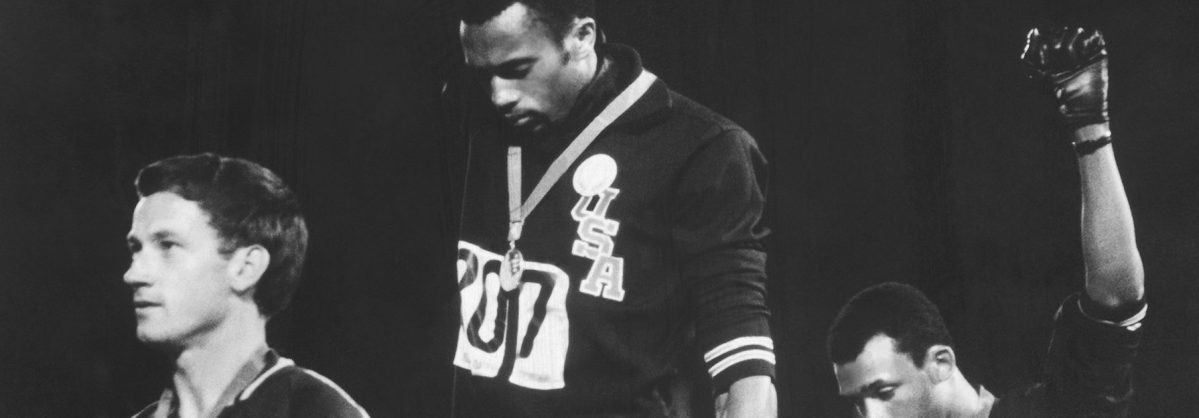Even before a single word gets spoken at today’s National Football League meetings in New York—where the fate of protesting players could be decided on—it’s worth understanding just how unprecedented this is.
NFL owners are meeting with players—who have been protesting social injustice on sidelines, on the field, in end zones, and in the media for well over a year—to reach some sort of common ground. As Bill Rhoden, writer at large at ESPN’s The Undefeated argued last week, the protesting players have a newfound power. But it’s unclear how they’ll be able to utilize it in NYC today.
That said, it’s not the first display of power by professional athletes in the history of sports, something that many fail to see. So ESPN’s Rhoden sat down with The New Yorker‘s Jelani Cobb to discuss the history of African-American protest in professional sports on a recent Politics and More podcast. RealClearLife has teased out some of the most interesting bits and quotes below.
-Rhoden tells Cobb that “our problem in the United States is not race, it’s racism,” and that there’s no longer an “intersection” between it and sports, but a “collision.”
-He says that the original message of Colin Kaepernick’s protests—that of police brutality and social injustice—was “hijacked.” Rhoden thinks the hijacked message hit its nadir when Dallas Cowboys owner and his team knelt before the national anthem. “That defeats the whole purpose,” says Rhoden. “The whole point of doing these [protests] is to make people uncomfortable.”
-In 1967, recent NFL retiree Jim Brown, one of the greatest running backs in the history of the league, called what is known as the “Cleveland Summit.” It was a conference of top African-American athletes in the U.S. Attendees met with Muhammad Ali, who had refused to go to Vietnam, and included athletes like Lew Alcindor (who later changed his name to Kareem Abdul-Jabbar). They held a press conference saying they supported Ali’s decision. For Rhoden, that meeting set a “standard” for what African-American athletes could do, given their place in life.
-On the concept that sports and politics don’t mix? Rhoden says, “As soon as you play the national anthem, you politicize a sport.” It’s not even “a debatable issue.”
-Regarding Colin Kaepernick, Rhoden thinks that even if he never plays another game, he’ll be seen as a symbol, one that gets talked about for decades to come. If he signs with a team and immediately fails at the position, that’ll be the news. “[He’d] lose this veneer of sainthood or martyrdom,” explains Rhoden.
-However, as a “sign of good faith,” one thing the NFL owners could do is actually sign Kaepernick. That will send a message of mea culpa to the players—that he was, in fact, blacklisted.
-A solution to all of this? Stop playing the national anthem at professional sports games, says Rhoden.
Whether you’re looking to get into shape, or just get out of a funk, The Charge has got you covered. Sign up for our new wellness newsletter today.


















